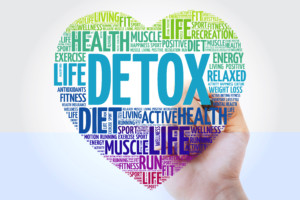What Are the Risks of Detoxing Without Medical Supervision?
Although most people think of detox as merely uncomfortable, the reality is that withdrawal from drugs or alcohol can be dangerous if you don’t take proper precautions. Symptoms are notoriously unpredictable and can range from mild aches and pains to intense physical reactions, such as seizures, that can cause severe health complications if left untreated.
Detoxing without medical supervision increases your risk of serious health consequences; the medical professionals who work at addiction treatment centers are trained to detect and treat any complications that may arise during the withdrawal process. If you’re ready to break free from the burden of addiction, beginning your recovery journey with a medically assisted detox program is the safest and most effective option.
Risks of Detoxing Without Medical Supervision
At first glance, detoxing at home might sound like the ideal solution because you’d be in a familiar environment and have a sense of control over the process. However, detoxing without medical supervision can be risky for several reasons.
- No help managing your withdrawal symptoms. During a detox, you can experience a wide range of physical and mental withdrawal symptoms, including irritability, anxiety, depression, nausea, and vomiting. In some cases, you might even have hallucinations.
- Increased risk of relapse. Due to the intensity of withdrawal symptoms, it’s common for a person in detox to have strong cravings for the abused substance. Without the proper support, you may struggle to manage your withdrawal symptoms and turn back to drugs or alcohol to find relief.
- Dehydration. Detoxing can cause dehydration, which can be especially dangerous if not managed properly. Dehydration can cause fatigue, dizziness, and confusion. In extreme cases, it can lead to organ failure.
- Malnutrition. If you’re detoxing at home, you might not feel like eating for several days—which can lead to malnutrition. This can result in a range of health problems, including weakness, fatigue, and even anemia.
- Aggravation of co-occurring health conditions. It is common for people with substance use disorders to have other serious health problems. This includes chronic physical illnesses such as high blood pressure or kidney disease as well as mental illnesses such as PTSD or bipolar disorder. The detox process can negatively affect these conditions, which increases the risk of complications when you try to detox at home.
- Potential for life-threatening complications. It’s rare, but detox can sometimes lead to life-threatening complications that require immediate treatment. For example, people who have abused alcohol for several years may be at risk for delirium tremens (DTs). This is an extreme form of withdrawal that can lead to deadly seizures. Experts estimate that up to 5% of people with alcohol use disorders are at risk for DTs during withdrawal, with the highest risk being among men and women who have been struggling with alcoholism for 10 years or more.
What to Expect During a Medical Detox
Given the risks associated with detoxing without medical supervision, seeking professional help is essential for anyone looking to overcome a substance use disorder. Medical detoxification offers a range of benefits.
- Professional medical support. During a medical detox, doctors and nurses can help manage withdrawal symptoms to ensure that the detox process is safe and that you’re as comfortable as possible. This might include the use of medication-assisted treatment (MAT), which utilizes medications such as buprenorphine, methadone, and naltrexone to help ease withdrawal symptoms and reduce cravings associated with addiction.
- Emotional support. Detoxing can be an emotionally challenging process, and professional help can provide you with the encouragement and understanding you need to stay on track.
- Personalized treatment plans. Medical detoxification is tailored to each person’s specific needs, so it can address the effects of co-occurring health conditions as well as any specific concerns you might have about the process.
- 24/7 monitoring. Medical detoxification provides continuous monitoring for your safety and well-being.
Detox Is Only the Beginning of Your Recovery Journey
Medically assisted detox is an important part of addiction treatment and can help you achieve and maintain long-term sobriety. However, detox does not “cure” addiction. Detox only removes abused substances from the body—it does not address the underlying factors that are connected to the development of a substance use disorder. A lasting recovery requires access to a full continuum of care that focuses on building the foundation for long-term sobriety.
Let St. Joseph Institute for Addiction Help You Take the First Steps Toward a Brighter Future
Our Pennsylvania residential substance abuse treatment center provides a full continuum of care for men and women with substance use disorders. Our medically managed detox program for opiates, alcohol, and prescription drugs is under the 24/7 supervision of our medical team, with a medical director who is board certified in addiction medicine.
After their initial detox, our clients have access to group and individual counseling, 12-Step support, and a wide range of holistic treatments designed to build the foundation for lasting recovery. When a client is ready to transition back to independent living, we offer continuing care and alumni services to ensure they have the support they need to be successful.
Our goal is to provide every client we serve with the tools and support they need to maintain their sobriety over the long term. If you are struggling with addiction, we encourage you to contact us to learn more about our program and how we can help.



